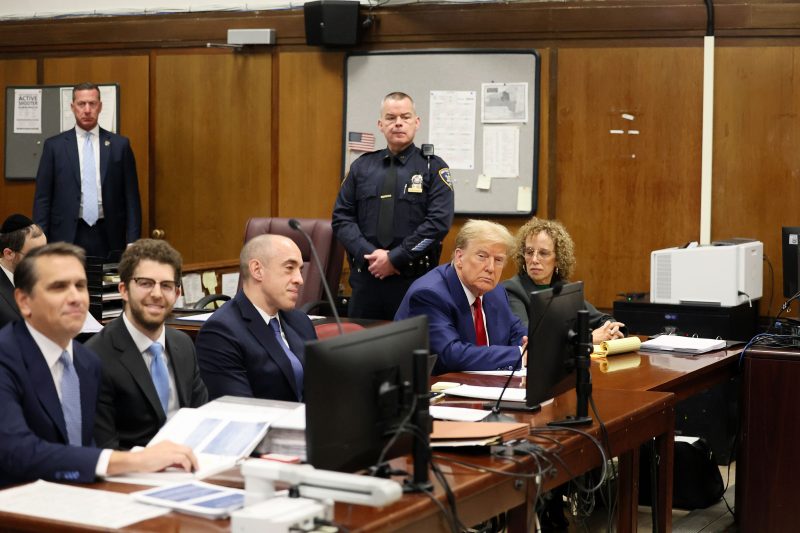In the realm of American politics, the possibility of a presidential nominee facing legal charges is not unprecedented. In recent times, the Trump administration has been mired in controversies and legal battles, raising questions about the implications of a potential scenario where the Republican nominee is convicted of a crime. Despite the legal intricacies involved, there are provisions within the U.S. Constitution and legal frameworks that address such situations.
One of the primary concerns raised in this context is whether a convicted individual can still hold public office, especially the highest office in the land – the presidency. The U.S. Constitution, specifically the 14th Amendment, addresses issues related to individuals who engage in insurrection or rebellion against the country. While this amendment was primarily intended to address the aftermath of the Civil War, its language could potentially be applied to individuals convicted of serious crimes against the state.
Additionally, the Constitution does not explicitly disqualify a convicted individual from running for or serving as President. The only requirements outlined in the Constitution for holding the presidency are being a natural-born citizen, at least 35 years of age, and a resident of the U.S. for at least 14 years. As such, a convicted individual could theoretically still be eligible to serve as President unless explicitly disqualified by law through impeachment or other legal processes.
In the context of a potential scenario where the Republican nominee is convicted of a crime, the issue becomes more complex when considering the political and practical implications. While legal provisions may not automatically disqualify a convicted individual from holding office, public opinion and political pressure could play a significant role in shaping the outcome. The political fallout and public perception of a convicted president could have far-reaching consequences for the administration and the country as a whole.
Moreover, the concept of executive privilege and immunity adds another layer of complexity to this issue. While the President enjoys certain legal protections and immunities while in office, the extent to which these protections apply in cases of criminal conviction is a subject of legal debate. The balance between holding a public official accountable for their actions and respecting the office they hold is a delicate one that requires a careful consideration of legal, ethical, and political factors.
In conclusion, while the prospect of a potential presidential nominee being convicted of a crime raises important legal and ethical questions, the U.S. Constitution and legal frameworks provide a framework for addressing such scenarios. The interplay between legal provisions, political considerations, and public opinion in determining the fate of a convicted president highlights the complexities and challenges inherent in the American political system. As the country navigates through these uncertain waters, the principles of justice, accountability, and democratic governance must guide decisions regarding the eligibility and conduct of public officials at all levels of government.


























